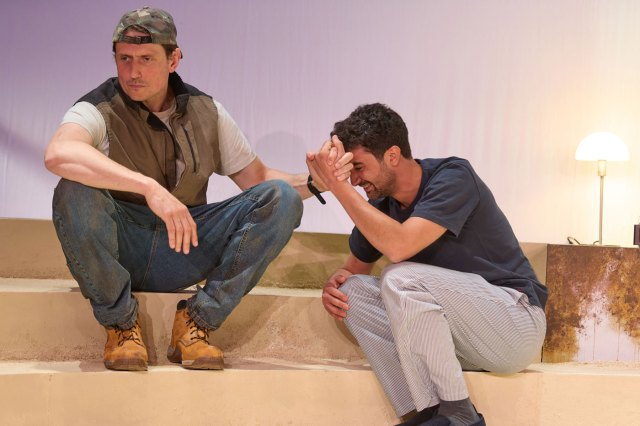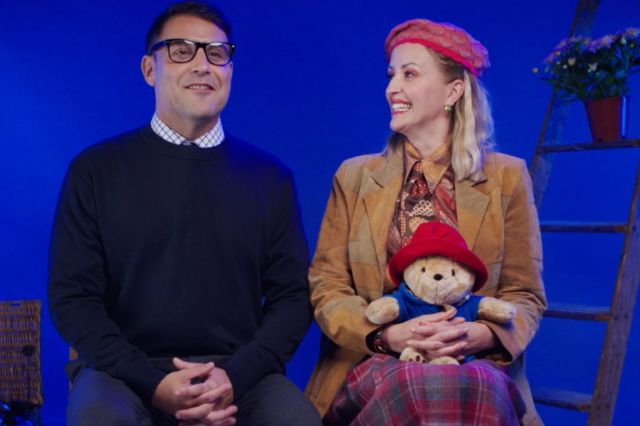How to Fight Loneliness at the Park Theatre – review
The UK premiere of the Neil LaBute play, directed by Lisa Spirling, runs until 24 May

What with the assisted dying bill having been voted in only last year in the UK, it seems timely enough to look at the kind of desperate situation people find themselves in without it.
Neil LaBute’s How to Fight Loneliness does that to some extent. But while it’s certainly a hefty discussion, somehow there doesn’t seem to be enough content to cover two and a half hours.
It starts strong: Jodie and Brad are nervously awaiting the arrival of a guest. Jodie is unnecessarily fussing over the food and making awkward small talk about whales, and Brad keeps faux-casually suggesting they call the whole thing off, despite the guest being nearly at the door.
You’d be forgiven for thinking they’re about to engage in their first threesome, except that the atmosphere is so strained. And we’re soon to find out why when their guest, Tate, finally shows up and Jodie eventually plucks up the courage to say, “We’d appreciate it if you would kill me.”
The moral implications are fought from three corners: Jodie, on her second round of cancer, has decided she can’t fight anymore; Brad wants as long as possible with his wife, and has no interest in partaking in this scenario. And Tate, a semi-uninterested party, thinks everyone should have agency over their own life, and he’s willing to contribute to the cause.
These arguments are made largely through big emotional monologues, which, granted, is how ethical arguments like this are often made. But after the first act, it seems like we’ve covered all bases. Act two sees the deed being done, and looks at those left behind, but there’s not enough meat here for it not to feel like a labouring repetition of the first half. Jodie just keeps slipping into another fraught monologue about how awful it is to reach a point where you’d rather die, and there are only so many earnest, brave-smiling speeches I can listen to before I begin to long for the inevitable’s arrival.
Mona Camille’s set design sees an arid desert landscape house a minimalist, stylish living room. Perhaps a remark on Jodie’s lack of quality of life, or on the conversation, likely months in the making, now laid entirely bare. It’s not an obvious choice, but it’s fairly unfussy and doesn’t distract from the plot.

Archie Backhouse and Justina Kehinde do well at presenting a lovingly worn-in relationship in the throes of a crisis. But besides the awkward small talk in the first 15 minutes, they don’t have much of a chance to relay any emotion except distress. Morgan Watkins serves as both moral arbiter and comic relief. He has a masterly ability at finding humour in the most mundane or strained exchanges while maintaining the scene’s tension.
Backhouse’s Brad is a clean-cut, well-educated man in chinos, and Watkins’ Tate starkly contrasts, having never graduated from high school and holding down a couple of minimum wage jobs. It’s an interesting play on power distribution: For all Brad’s got, it’s Tate who Jodie turns to in her last moments.
This is slightly overegged in the third act: Brad and Tate meet after the fact, and Tate takes the opportunity to repeatedly tell Brad he’s a worthless coward, despite the fact that Brad has just lost his wife, and in particularly distressing circumstances.
And, having truly reached a point where surely nothing more could be said on the subject, LaBute seems to panic and add in another plot-twist detail, thereby dipping a toe into another very tricky moral argument just before the curtain.
It’s tempting to suggest the story should be half as long, but surely there’s enough to be said about assisted dying without the audience feeling they’re being lectured on the subject.
















